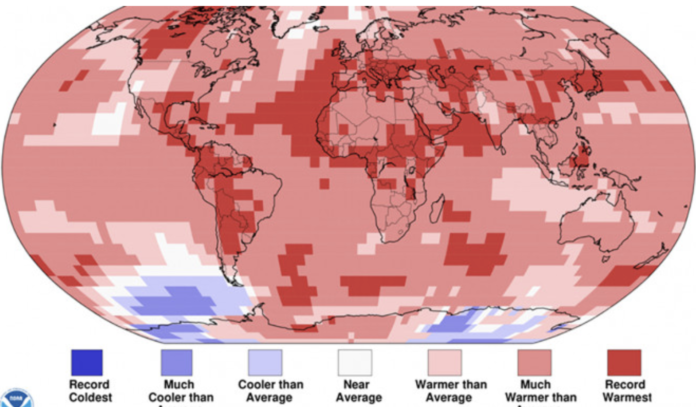By Jessica Park
Summer is almost here, and that means getting ready for some seriously hot weather. Recent reports show that scorching heat isn’t just happening in one place—it’s a global problem, as seen in the picture above. But what exactly is “scorching heat,” and where did the term come from? Countries like India have already felt its effects. So, let’s find out what scorching heat means, what we might expect this summer, and how to handle it.
What is Scorching Heat?
“Scorching heat” refers to extremely high temperatures, usually with intense sunlight and few clouds. When we say “scorching,” we mean it’s really intense, almost like it could even hurt you. The word “scorch” comes from Old English, where it meant “to burn slightly.” Even though it is not directly from Greek, both English and Greek have terms conveying the concept of intense heat or burning. The specific temperature for “scorching heat” can vary depending on things like humidity and where you live. But generally, if temperatures above 90°F (32°C) are considered hot, and once they surpass 100°F (38°C), it’s commonly described as scorching heat. However, people might feel differently about what’s scorching based on their climate and personal tolerance levels. Scorching heat isn’t just uncomfortable—it can be dangerous, especially for older people, kids, and those who work outside. It can make you sick, causing problems like heat exhaustion or heat stroke. Moreover, it can contribute to environmental challenges like droughts and wildfires.
Trends in Scorching Heat This Summer:
Around the World:
The world is seeing more heatwaves and record-breaking temperatures, which are causing big problems for public health and the environment. Rising temperatures contribute to various health risks, including heat-related illnesses such as heat stroke and dehydration, particularly among vulnerable populations. Additionally, the environmental impacts of scorching heat are profound, exacerbating issues such as drought, wildfires, and heat-related mortality in ecosystems worldwide.
In Different Places:
In India, for example, in May 2024, there was a significant resurgence of heat waves with temperatures reaching alarming heights. Reports revealed that specific regions recorded temperatures as high as 49.9 degrees Celsius (121.82 degrees Fahrenheit), raising widespread concerns regarding public health and safety. The picture below captures a girl shielding herself from the scorching sun with a repurposed engine oil container as she traverses the outskirts of Jammu, India, on Friday, May 31. The intense heat led to some tragic deaths, prompting officials to issue warnings and take steps to keep people safe.
Image: US News
In the United States, many areas are also expected to see more scorching heat this summer. In Central Florida, temperatures have spiked into the upper 90s, heightening discomfort and posing health risks for both residents and visitors. Additionally, prolonged heat waves have impacted areas such as Texas and the Gulf Coast, presenting significant challenges to local communities and infrastructure. In Miami, recent reports highlight an extreme heat wave where temperatures soared to feel like 112 degrees Fahrenheit.
Beat the Heat: Tips and Tricks:
To stay safe and cool in the scorching heat, try these tips:
- Stay hydrated–drink plenty of water.
- Take cool showers multiple times a day.
- Stay indoors when the sun is at its strongest, usually from 10AM to 4PM.
- Wear light-colored, loose-fitting clothing and a wide-brimmed hat when going outside.
- Use sunscreen with at least SPF 30.
- Keep windows and curtains closed during the day to block out heat.
- Keep an eye on weather forecasts so you can be prepared for heat waves.
What We can Do Importantly: Addressing Climate Change
As temperatures keep going up, it is important to find ways to avoid extreme heat. One major aspect of climate change contributing to this is the greenhouse effect. By reducing greenhouse gas emissions and shifting to renewable energy sources, we can help lessen the frequency and intensity of heat waves. What can we do to help fight climate change? Let’s work together to make positive changes for our planet. Through student-led action for climate change, we can strive for a more sustainable future with less scorching heat.
References

